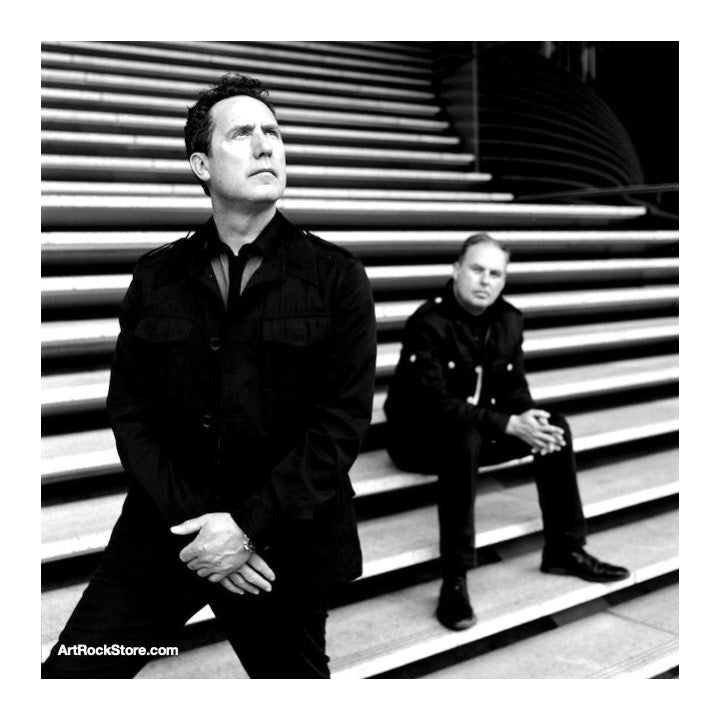
OMD | Artist
Orchestral Manoeuvres in the Dark (OMD) is a British electronic music band formed 1978 in Wirral, Merseyside, by Andy McCluskey (vocals, synthesizer, bass) and Paul Humphreys (synthesizer, vocals). Additional long-term members are Martin Cooper (keyboards, saxophone) and Malcolm Holmes (drums), who both joined in 1980. The band emerged in the late 1970s and quickly became synonymous with the synth-pop movement. OMD's innovative fusion of experimental minimalist electronic soundscapes, catchy melodies, and thought-provoking lyrics has solidified their status as influential pioneers in the realm of popular music. The band's early years saw them experiment with DIY electronic instruments, incorporating them into their music to create a distinctive and futuristic sound. Their breakthrough came with the release of their debut single, "Electricity" in 1979, which showcased a unique blend of catchy pop hooks and electronic textures. This was followed by their self-titled debut album, which garnered critical acclaim and laid the groundwork for their future success. OMD achieved widespread recognition with their 1980 album Organisation which featured the hit single "Enola Gay." The song's infectious melody and melancholic yet danceable synth-pop sound catapulted OMD into the international spotlight, earning them a devoted following and establishing them as one of the leading acts in the burgeoning synth-pop genre. Throughout the 1980s, OMD continued to release a string of successful albums, including Architecture & Morality (1981) and Dazzle Ships (1983), both of which showcased the band's willingness to experiment with avant-garde sounds and unconventional song structures. Architecture & Morality in particular, is regarded as a seminal work in the synth-pop genre, featuring iconic tracks such as "Joan of Arc" and "Maid of Orleans (The Waltz Joan of Arc)." OMD's music often delved into themes of technology, human emotions, and societal concerns, reflecting the band members' keen interest in the intersection of art and technology. Their ability to infuse their music with introspective lyrics and infectious melodies set them apart from their contemporaries, earning them a reputation for creating intelligent, emotionally resonant pop music. After a hiatus in the 1990s, OMD returned in the early 2000s, releasing new material and embarking on successful tours that reaffirmed their enduring appeal. Their 2010 album History of Modern marked a triumphant return to form, showcasing a modernised sound that retained the band's signature style while appealing to a new generation of fans. Of their 14 studio albums the first five: OMD (1980), Organisation (1980), Architecture & Morality (1981), Dazzle Ships (1983), Junk Culture (1984) and Crush (1955) are highly recommended. After several sub-par releases, the band rebounded with four strong late-career albums, namely: History of Modern (2010), English Electric (2013), The Punishment of Luxury (2017), and Bauhaus Staircase (2023). In 1990 Humphreys, Cooper and Holmes formed the spinoff group The Listening Pool, releasing one excellent album Still Life (1994). In interviews, founders Andy McClusky and Paul Humphreys speak of their early love of electronic music, and acknowledge the influence of German bands Kraftwerk and Neu!. OMD have been hailed as one of the most influential synth-pop acts in history, who broke out of the post-punk scene and lead the charge toward the defining sound of following decades.
Artist Website: omd.co.uk
Featured Albums: OMD
Related Artists: Orchestral Manoeuvres in the Dark, The Id
